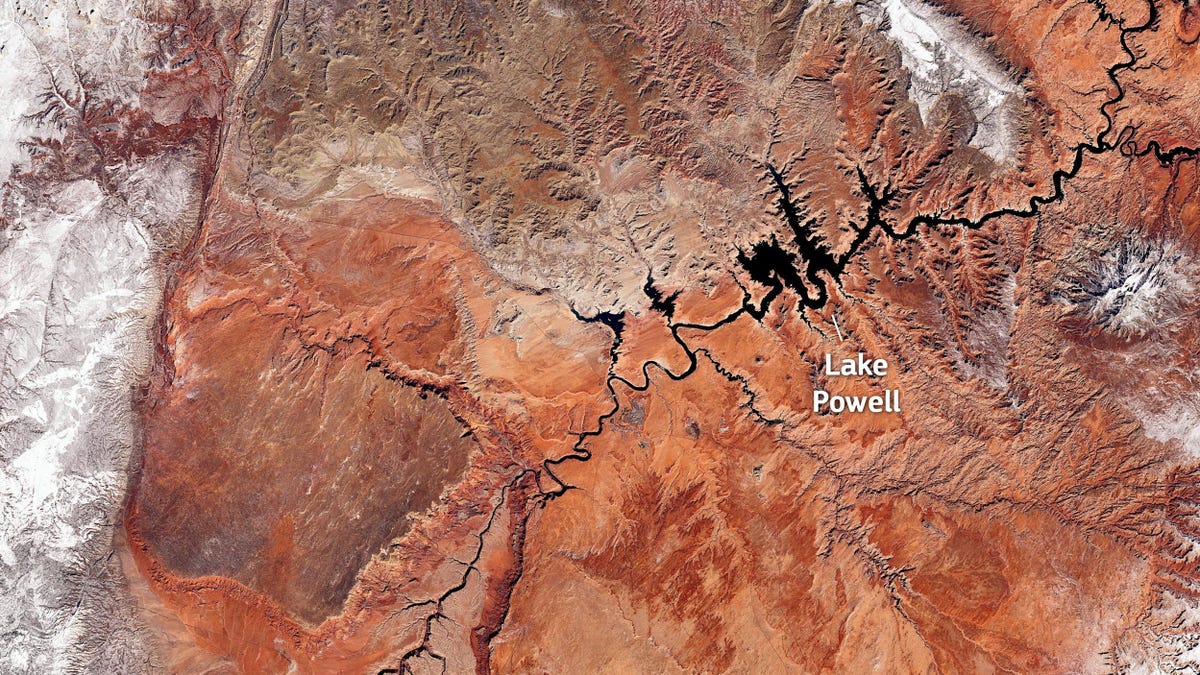Lake Powell Is in Big Trouble
The crucial reservoir is set to hit a worrisome new low this month, after an exceptionally dry winter.


Lake Powell, on the border of Utah and Arizona, is a crucial reservoir along the Colorado River, part of a system that supplies water for 40 million people in multiple states across the West.
As of Tuesday, according to readings provided by the U.S. Bureau of Reclamation, the lake stood at 3,526 feet (1,074.73 meters) above sea level, or around 24% of its total capacity. That’s just 1 foot above a threshold of water outlined in drought contingency plans, which would trigger additional releases from upstream water sources. Authorities say that this month, the lake could dip below the 3,525-foot (1,074.2-meter) trigger point, part of a series of new lows the lake has been hitting since reaching its previous lowest level on record, 3,555.09 feet (1083.6 meters), in July.
The image above, captured by the European Union’s Copernicus Sentinel-3 satellite in late February, shows the parched Colorado River and Lake Powell from space.
This particular low won’t be permanent; the spring runoff, the Bureau said, should help juice the lake back up. However, the fact that it’s so low in the first place is incredibly worrisome. The lake is sitting dangerously close to the cutoff level for Glen Canyon Dam, which can provide electricity for 5.8 million homes and businesses across Western states. The dam needs at least 3,490 feet of water to run; the 3,525-foot cutoff was designed to provide a buffer in order for the electricity to keep flowing.
“We’re kind of in some uncharted territory, socially and economically,” Justin Mankin, who helps lead the National Oceanic and Atmospheric Administration’s Drought Task Force, told CNN. “It’s totally within reason to expect that the next couple of weeks or so for [Lake Powell] to fall below the critical level. . ."
Read more >> https://gizmodo.com/lake-powell-is-in-big-trouble-1848627341

No comments:
Post a Comment